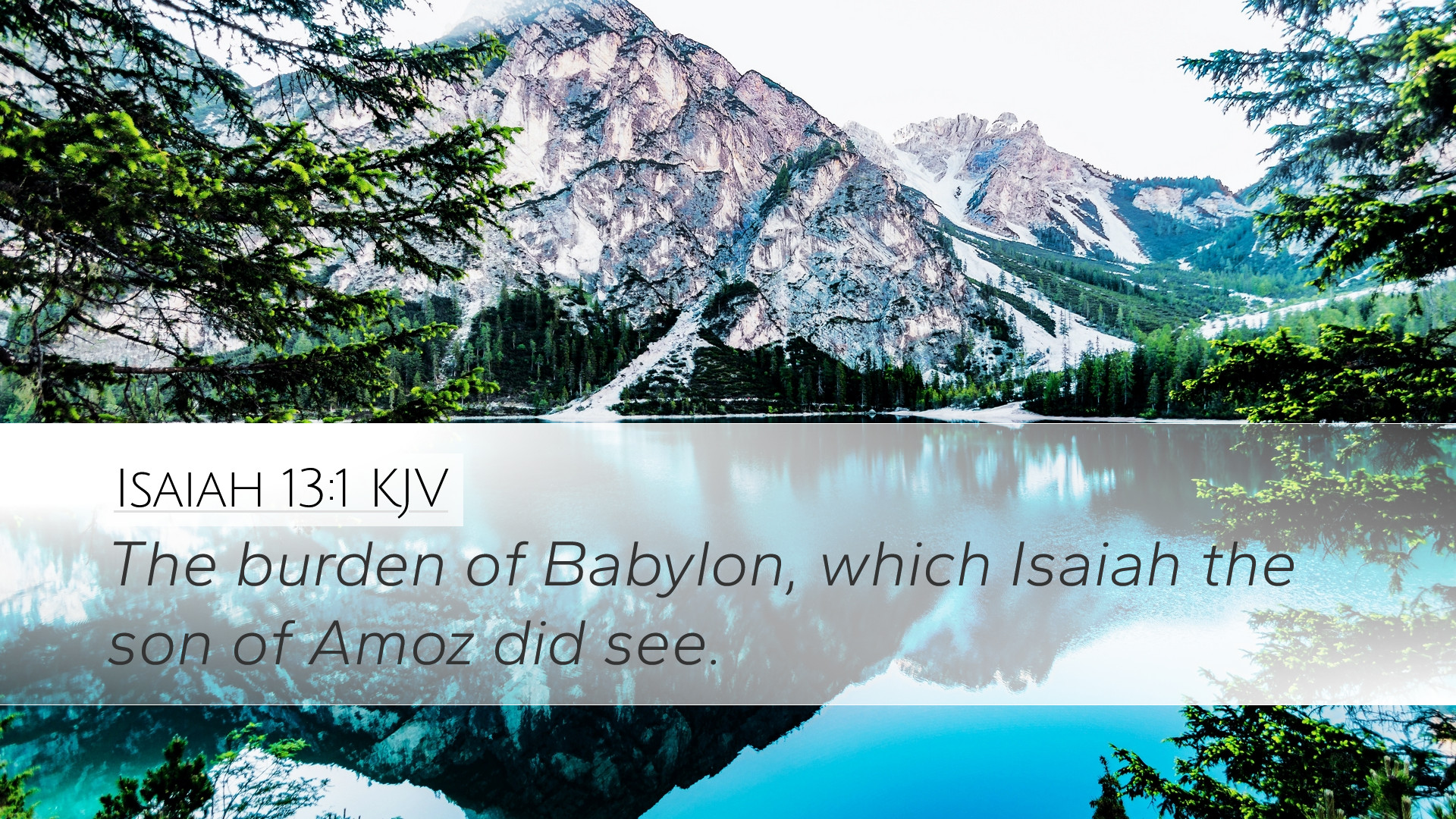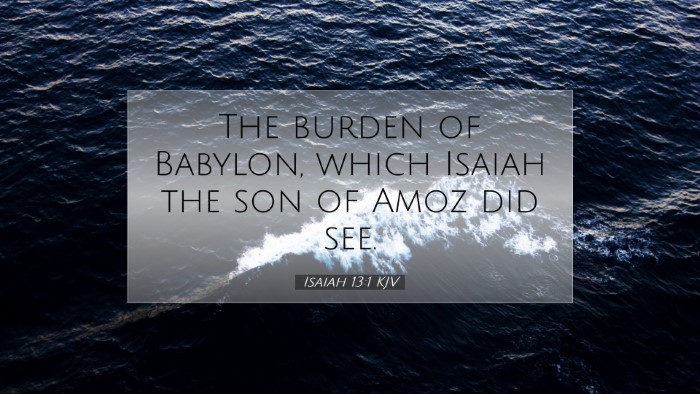Commentary on Isaiah 13:1
Isaiah 13:1 states: "The burden of Babylon, which Isaiah the son of Amoz did see." This verse serves as an introduction to a prophetic pronouncement concerning Babylon, its impending judgment, and the broader implications for the nations. Below, we explore insights from various public domain commentaries.
Contextual Overview
This passage stands at the beginning of a series of oracle prophecies (Isaiah 13-23) that are directed towards various nations, indicating a transition in Isaiah's ministry, focusing not just on Israel but on the surrounding nations and empires. Babylon, as the focal point here, represents both a historical reality and a symbol of pride and idolatry.
Scholarly Insights
-
Matthew Henry:
Henry notes that the term "burden" signifies a weighty prophetic message that involves not only judgment but also the severe implications of sin leading to desolation. It reveals God's displeasure with Babylon's arrogance and oppression.
-
Albert Barnes:
Barnes elucidates that the reference to Babylon indicates its historical role as a symbol of cruelty and pride against God. He emphasizes the prophetic aspect, where Isaiah is portrayed as a seer who perceives not just present realities but also future calamities that will befall this great empire.
-
Adam Clarke:
Clarke reflects on the significance of Isaiah's vision, suggesting that the burden signifies a divine revelation revealing the future destruction of Babylon. He comments on the moral and spiritual implications, emphasizing that such prophecies serve as warnings to all nations for their wickedness.
Interpretive Themes
-
Prophetic Judgment:
The idea of a "burden" implies significant emotional and spiritual weight associated with the prediction. This judgment speaks to God's sovereignty over nations and His power to raise and bring down empires according to His purposes.
-
God’s Sovereignty:
Isaiah’s vision demonstrates that God is the ultimate arbiter of history. The downfall of Babylon is not merely a political event; it showcases God's control over the affairs of mankind and His ability to fulfill His promises of justice.
-
Symbolism of Babylon:
Babylon represents a broader concept of human pride and rebellion against God. The destruction prophesied serves as a reminder of the transient nature of human power in contrast to God's eternal sovereignty.
Theological Reflections
This verse invites readers to reflect on the following theological implications:
-
The Nature of Prophecy:
Prophecy often includes a dual aspect of immediate and eschatological fulfillment. Isaiah's message about Babylon offers insights not only into the historical events of his time but also prefigures the ultimate judgment to come against all who oppose God.
-
Judgment and Grace:
While the message of judgment is stark, it also serves as a call to repentance and a reminder of God's grace towards those who turn back to Him. The existence of such prophetic warnings is rooted in God’s mercy, desiring repentance over destruction.
-
The Role of Nations in God’s Plan:
This verse teaches that nations are players within God’s broader redemptive narrative. Each nation will ultimately be held accountable for their actions, aligning with God’s justice and righteousness.
Practical Applications
For pastors, theologians, and students, this verse serves numerous lessons:
-
The Importance of Prophetic Voices:
In today’s context, the church is called to be a prophetic voice, proclaiming truth and justice in the face of cultural and moral decline.
-
Understanding Historical Context:
Studying the historical context of Babylon enriches our understanding of God's Word and His ongoing engagement with humanity. It encourages deeper theological reflection on the nature of sin and divine judgment.
-
Seeking God’s Will:
As believers reflect on national and global events, Isaiah urges them to seek God’s perspective. Understanding God’s sovereignty can bring peace amid turmoil and uncertainty in the world.
Conclusion
Isaiah 13:1 opens a profound discussion about God’s ultimate justice, the nature of prophecy, and the roles that nations play in His divine plan. By engaging with the rich tapestry of Biblical commentary, we deepen our appreciation for the text and its transformative power for both individual lives and the world at large.


